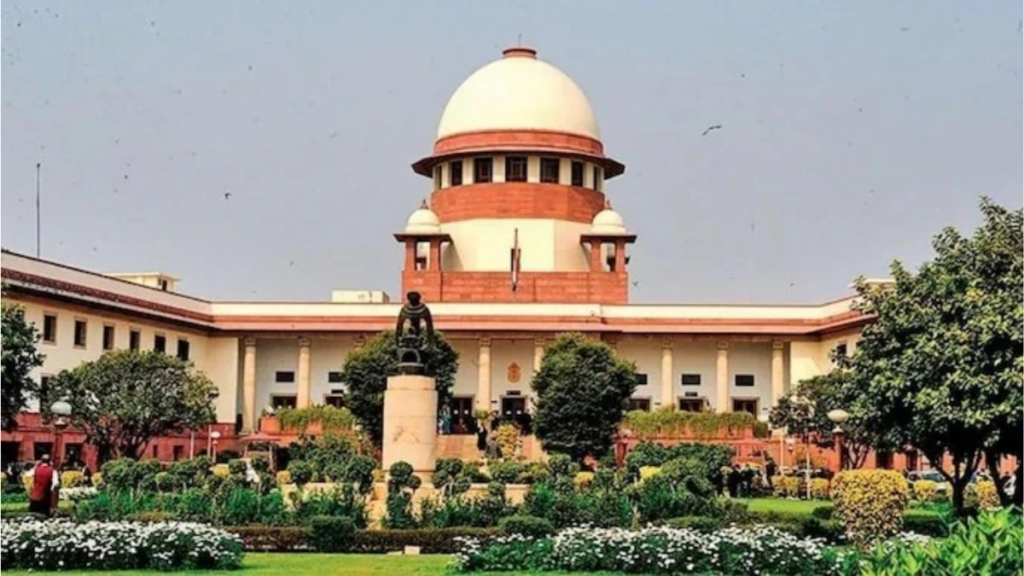Supreme Court on 21st April rejected a petition filed by 18 students who finished their Class 12 exams in 2023, claiming eligibility to appear for the JEE-Advanced 2025, the key to the coveted Indian Institutes of Technology (IITs). The bench of Justices B.R. Gavai and Augustine George Masih stressed that academic policy decisions are based on the jurisdiction of educational authorities and are usually not amenable to judicial scrutiny..
Petitioners Oppose Reversal of Policy
The petitioners argued that they were prejudicially impacted by a sudden policy flip-flop by the Joint Admission Board (JAB), which manages the conduct of the JEE-Advanced. Firstly, on 5th November 2024, JAB released a statement that students who appeared for Class 12 examinations in 2023, 2024, or 2025 would be eligible for JEE-Advanced 2025. But later, this move was withdrawn only after 13 days, i.e., on 18th November 2024, by limiting the eligibility to only those who appeared in Class 12 in 2024 or 2025.
The students pleaded that this new development derailed their education plans, particularly when they were yet eligible to take the JEE-Mains 2025, the initial exam for engineering aspirants. The difference between eligibility conditions for JEE-Mains and JEE-Advanced created confusion and uncertainty among the aspirants.

Supreme Court’s Observations
The bench at the hearing raised questions over why three attempts would be given to JEE-Mains and why JEE-Advanced would only be allowed two attempts. “Why don’t you limit it to two even for Mains?” Justice Gavai asked, hinting at the requirement of consistency in examination regulations.
Solicitor General Tushar Mehta, acting on behalf of the authorities, invoked a prior order of January 10, 2025, in which the court had recognized the JAB’s press releases and the ensuing policy changes. He stressed that the decision to restrict eligibility had been taken in the interest of students at large so as not to hamper academic progress through long preparation periods.
What Implications Does This Decision Have for Future Aspirants?
The Supreme Court’s rejection of the plea highlights the judiciary’s approach to non-interference in academic policy matters. This establishes a precedent that educational authorities are free to decide on eligibility criteria, and such decisions are unlikely to be set aside unless they offend fundamental rights or principles of natural justice.
Exception for Specific Candidates
It is interesting that in its order dated January 10, 2025, the Supreme Court granted relief to one set of students. The ones who had withdrawn from their courses between November 5 and November 18, 2024, on account of the initial announcement of eligibility, were allowed to enroll in JEE-Advanced 2025. This was an exception made keeping in view the fact that these students had shifted their academic courses based on the previous policy.
Academic Community Responses
The move has received conflicting reactions. A section of policymakers and educators endorses the court’s focus on upholding academic policy sanctity and avoiding overreach by the judiciary. Frequent judicial interference, they maintain, can create uncertainty and interrupt the education environment.
On the other hand, student advocacy groups are worried about the lack of transparency and the sudden manner in which policy reversals occur. They push for more regular and student-centric policies, calling for proper communication from education authorities to avert such conflicts.
The Supreme Court’s judgment upholds the principle that academic policy-making is the domain of education authorities and is normally outside the scope of judicial review. While the court granted relief to a certain class of students whose academic planning had been impacted due to the change in policy, it reaffirmed the more liberal eligibility conditions framed by the JAB for admission to JEE-Advanced 2025. The decision shows the necessity for timely and accurate communication from the educational authorities to allow students to plan their academics without surprises.
ALSO READ
“SUPREME COURT Closes the Door on NEET-UG 2024, Centre to Implement Revolutionary Reforms!”